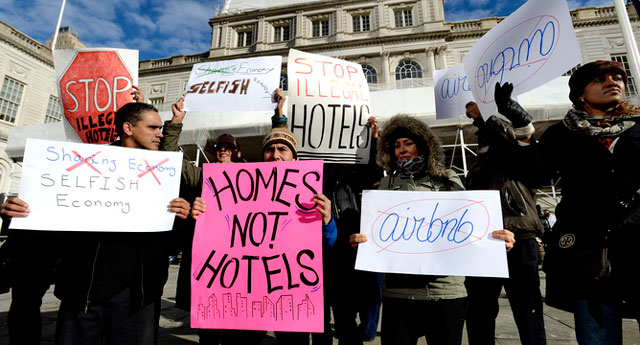
Year-on-year supply and demand for Internet accommodation service Airbnb is exploding in South Africa with triple-digit percentage growth.
This is according to Airbnb GM for the Middle East and Africa Nicola D’Elia, who is visiting South Africa this week.
Airbnb uses the Internet to allow ordinary property owners to rent out rooms and even entire homes to guests from anywhere in the world.
The number of South African homes listed on Airbnb has jumped from around 9 000 in July this year to 13 000, said D’Elia.
But on a year-on-year basis, he said the service has grown 163% in terms of local homes listed, while the number of nights booked in South Africa has increased 259%.
South Africa is Airbnb’s biggest African market followed by Morocco, which has 9 000 homes, said D’Elia.
“It’s a bit like the S-curve where we’re now at that point where growth is becoming exponential,” D’Elia said. “So, I think there is still huge potential.”
At this stage, it is hard to determine if demand is outstripping supply as hosts can have multiple night bookings from different guests, D’Elia explained.
Meanwhile, Cape Town is Airbnb’s biggest African city with 7 500 homes listed, while Johannesburg stands at 1 500 and Durban at less than 1 000.
But Durban has experienced 500% growth in Airbnb year-on-year, Cape Town 224% and Johannesburg 320%, said D’Elia.
Up to 70% of Airbnb guests in South Africa are also international, he explained.
D’Elia said key reasons for Airbnb’s growth in South Africa include people enjoying the service, a greater trust in the platform and even word-of-mouth marketing.
“We are going back to what travelling and hospitality was 100 to 200 years ago. I would say hotels were a disruptor at the time because people … were staying at people’s homes before,” D’Elia said.
“So in a way, Airbnb is nothing new. It’s just bringing back hospitality in a different way in the traditional sense of hospitality,” he said. — Fin24




